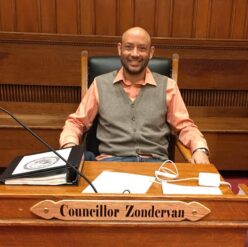I have worked with colleagues to propose that the city create a Racial Justice & Equity Commission. One of the main tasks of this commission will be to implement related policy orders around delivering reparations for slavery and restitution for the war on drugs. Please support Policy Order #11 on Monday night’s agenda by sending an email to council@cambridgema.gov! Below you will find the detailed proposal in full.
Executive Summary
The Commission will examine all aspects of government, society, economy, and environment in light of historic, systemic, and ongoing racial injustice and inequity in our city. Within the first year the commission will report on at least the following:
1. Implementation of policy order 2021 #141 calling for a percentage of revenue from local cannabis sales, as well as applying funding from other sources, towards reparations for slavery, and implementation of policy order 2021 #166 calling for a percentage of revenue from local cannabis sales to be applied towards restitution for the war on drugs, and redress for other racially unjust policies.
2. Proposals for immediate changes to any aspects of city government that would likely lead to improved racial justice and equity outcomes, based on research and data, including but not limited to housing, education, economic opportunity, healthcare, mental health, crisis response, and environmental justice.
3. Identify future areas of work, including but not limited to: additional sources of revenues for reparations for slavery and land theft, additional acknowledgments of harm and apologies for past and ongoing transgression, names (of buildings, streets, neighborhoods, schools), climate change impacts and any other aspects of life that can and should be addressed from a racial justice and equity lens.
The Commission will also track and respond to state and federal efforts, such as H.R. 40, which was recently moved out of the House Judiciary Committee in Congress.
Structure
The commission shall at its inception have not less than one full-time staff person hired by the city. The commission shall further have appointed commissioners who represent different areas of knowledge, including but not limited to:
- Economic Opportunity
- Housing
- Education
- Public Safety/Policing
- Mental Health
- Public Health
- Medicine
- Urban Agriculture
- Recreation
- Finance
- Environmental Justice
- Climate Change Impacts
- Transit Equity
The commission shall pay a stipend of $100/hour for regular meeting attendance to all Commissioners. Any work done in addition to meeting attendance shall be compensated through a contract with the city.
Commissioners will serve for 1-year terms, with no more than 2 consecutive terms served.
A majority of the Commissioners shall be women or non-male identifying, and a majority of the Commissioners shall be people who identify as Black, with the remainder having a balance of representatives of other marginalized communities, including Asian, Native American, Hispanic.
The majority of Commissioners shall be current or former Cambridge residents. Relevant city departments will select representatives to coordinate with the commission, but city staff shall not be commissioners.
Timeline and Implementation
The commission shall be seated in the fall of 2021 and begin regular meetings. Staff will be hired as soon as possible, and the first order of business shall be taken up regarding cannabis revenues and a comprehensive audit of racism embedded in our laws, policies, departments, and structures of government and the economy.
History and Motivation
Racial injustice in the U.S. goes back not just to the founding of the United States but to the very beginnings of colonization of the American landmass by European people, beginning with the subjugation and displacement of Indigenous People, and continuing with the abduction of African People as slaves, and the mistreatment of Asian immigrants and others denied access to full participation in American society.
While modern American society has abolished chatel slavery and outlawed some forms of overt racism, people of African, Indigenous and non-European descent continue to be harmed by racist policies and ideas that perpetuate and amplify both historical and new inequities.
By establishing this commission and fully acknowledging the magnitude of harm that is being done, we create opportunities to systemically and radically eradicate racist policies and ideas from our lives and from our future.
Education and Awareness
Because racism is active literally everywhere in our society, it can seem daunting and overwhelming and even intractable. However, the only true limit to what we can accomplish is the depth of our commitment to accomplishing it. While we cannot eradicate racism and inequality everywhere all at once, we can identify specific aspects of racism and inequality to attack and continue to collect and focus resources on different areas of our society and government, improving the lives of people who have for too long been ignored, marginalized and oppressed.
To that end the commission will seek to educate the government and the people of Cambridge on these issues of racial justice and equity, empowering more and more people to take right action in order to reduce harm, using both formal and informal means of education.
Resources and Growth
The commission is neither the beginning nor the end of our reckoning with racism and inequality. There are many ongoing efforts in our city that the commission can strengthen and drive resources towards, and there are many areas of effort that will require their own organizational structures, funding and staffing to succeed. The commission’s purpose is to identify these areas and steer resources towards them, not to solve every problem it sees by itself. The intent is to put the full power and resources of the government behind these efforts to maximize success and produce ongoing positive outcomes.
As these efforts succeed, they will empower more and more people and organizations to make change, until anti-racism and equity work become as routine and thorough as food production or electricity generation: a normal part of what we do every day to nurture and sustain our civilization.
